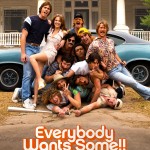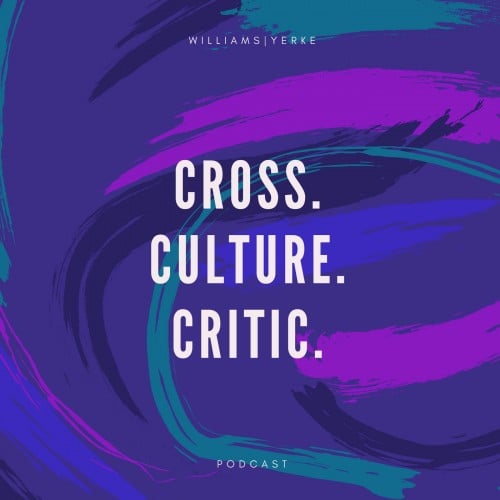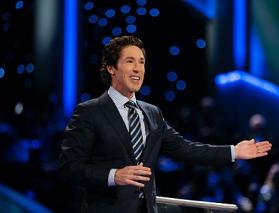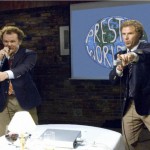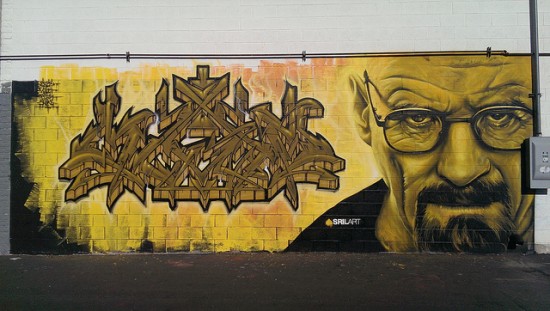
This post is part of a weekly series focused on the National Geographic Channel’s documentary miniseries “The Story of God with Morgan Freeman.” I’ll be tackling the topics of that series from a Christian perspective over the next weeks, posting on Tuesdays. This post is based on the next episode, “Evil,” which will air on 5/1 at 9 p.m.
Why do we love antiheroes?
Don Draper. Tony Soprano. Walter White. For several years, the most popular television shows were about men who did very bad things. These weren’t just lovable screw-ups who made a mess of family dinner and resolved everything by the last commercial break. These were men who cheated on their wives, ran criminal empires and killed people. While the antihero has been around for ages, something about it seems to resonate more strongly today.
I’m not immune to it. I was so obsessed with “Breaking Bad” — a program I still consider to be the best television drama of all time — that I binged three or four episodes a night, several nights a week. I once ruined an entire evening during a Florida vacation because my nerves were so frayed by the episode I’d watched. If any show could cause me to have a panic attack, it was “Breaking Bad.”
The show was critically beloved and a pop culture event for a number of reasons. The acting was unparalleled. Vince Gilligan’s plotting was meticulous. The cinematography, directing and editing were better than you see in most movies. It was a show that ratcheted up the tension week by week until it was nearly unbearable. It gave us a central character who started off as sympathetic, and then turned him into the villain. Every week, I watched with the gnawing feeling in my gut that things could not end well.
In the show, Walt is a high school chemistry teacher who turns to cooking and selling meth when he learns he has inoperable cancer. He does this, he says, so that he can pass money to his wife and kids when he dies. But even after he receives an “all-clear” from the doctor, he stays in the meth business. He wants to build an empire. Driven by ego, his actions become more vile, and he destroys his family, friendships and normal life so he can be on top. He keeps lying, manipulating and conniving. Finally, near the end of his life, he comes clean. This was never about the kids, he says to his (now-ex) wife. “I did it for me,” he says, in the show’s most honest moment. “I was good at it. I liked it.”
The reason “Breaking Bad” worked so well was because it showed how little work it took for a decent human being to become a monster. And the reason it resonated is because we saw something true about our own lives.
We have a hard time relating to thoroughly good guys. Superman’s an ideal, but he’s not someone that we see ourselves as. He’s too noble, too good to be true. We relate to the Walter Whites, Don Drapers and Tony Sopranos because we see amplified versions of ourselves. We may never have faked our death and taken on another man’s identity, but we’ve known what it’s like to ruin relationships and hurt others as we recklessly pursue our own desires. We may never have cooked meth or started a drug empire. But how many good intentions have snowballed into nightmares? How often have we derailed good things in the name of getting our ego stroked?
We have a hard time relating to Superman because we know we’re not him. We turn to the antiheroes because we recognize the brokenness inside.

For Christians, this is called original sin (or “Total Depravity” if you want to get all Calvinist about it). It’s the result of the Genesis 3 story, when Adam and Eve ate the forbidden fruit.* The point of that story is that, when left to their own devices, humans will choose the wrong thing. They’ll put their own desires and self-interest before God, believing they’re doing the right thing. And then things get screwed up. From Adam and Eve leaving Eden, it’s just one short chapter before murder’s introduced. Just a few more chapters and violence has overrun the planet. And if you read the entire Old Testament, you’ll see a long line of people whose pride, lust and idolatry cause generations of problems.
Over the years, I have re-examined and wrestled with what, exactly, I believe about the various doctrines of Christian faith. But I’ve never doubted the doctrine of original sin. I see it proven every time I turn on the news. I’m reminded of it every time my kids misbehave. It’s lived out in every conflict I have with my wife. Even when I’m on my own, my inner thoughts and desires convict me. And while our own little sins might not seem like evil to us, look what happens when six billion sinners interact. Is it any wonder that the news sometimes looks like the trailer for a dystopian thriller?
I think we all believe something’s not quite right. I think that’s what leads us to our faiths in the first place. We want answers as to why this is all screwed up, and what can be done to make it right.
In Christianity, the “why” comes down to an act of grace. God could have easily programmed us just to obey him and never turn from his commands. But for a relationship to be rooted in love, there had to be the freedom for us to reject him**. In giving us the gift of free will, God gave us an option. We weren’t created to be slaves, but lovers. We had the choice to choose to see him as worthy of our love or to reject him and pursue our own self-interest. We chose the latter, and we’ve suffered for it. In the great gift of freedom, we chose wrongly, and we do it over and over. The good gift that makes us free is also what gave us the rope to hang ourselves.
And yet, the question of how to make it all right also comes down to grace.
Growing up, it seemed that the way the Christian Gospel was explained to me always started in Genesis 3, with sin. It was reinforced that I was a sinner, capable of no good. I even had some Christian leaders flat out tell us that the moment we were born, we were despicable, ugly and worthless until God had pity on us. There’s a more nuanced theological discussion to explain all this that I don’t have the time to get into here, but suffice to say we were told that we were basically trash that God felt sorry for.
But the story of the Gospel doesn’t begin in Genesis 3. It begins in Genesis 1*, with man being made in God’s image. And the story of Christianity isn’t about how people have screwed up the world. Rather, it’s about how God is making a screwed-up world right. The gospel shows God coming into the story to die for and save broken humans and then restore them to that Genesis 1 position. We are beautiful ruins who are being renovated. We don’t have to despair about the evil in the world. The Bible doesn’t let the ruined world or sinful humans be the end of the story; rather, they’re the catalyst for bringing God in to save the day. And when we see the love he showers on his people, we then see him as infinitely worthy of love and worship and choose him.
Like I said, we resonate with antiheroes because we see ourselves in them. But we also resonate with redemption stories. We want to see Don Draper smile or Walter White find rest. Our favorite movies are stories of broken people being made whole. That’s because this is the story we were made to live in, and the hope we were made to find. We’re badly broken, but not beyond repair. And that’s the good news of Christianity.
* Yes, I know I spent time last week talking about how I don’t necessarily know that we should take everything in Genesis literally; that doesn’t mean I don’t think there’s there’s still great truth in it.
** This is where my Reformed friends will talk about election. We’re not going to do that here, except to say I think this statement and election can both be true.
Previous “Story of God” Posts

